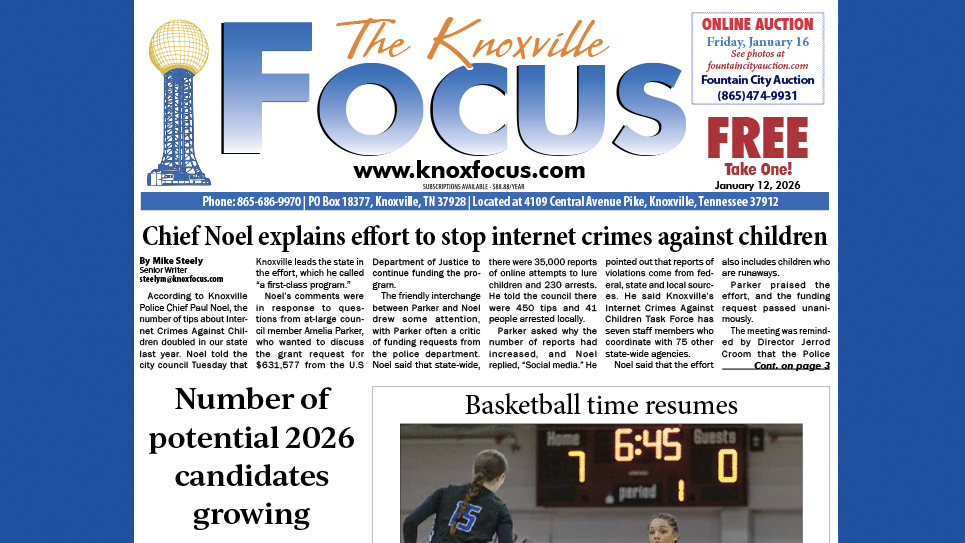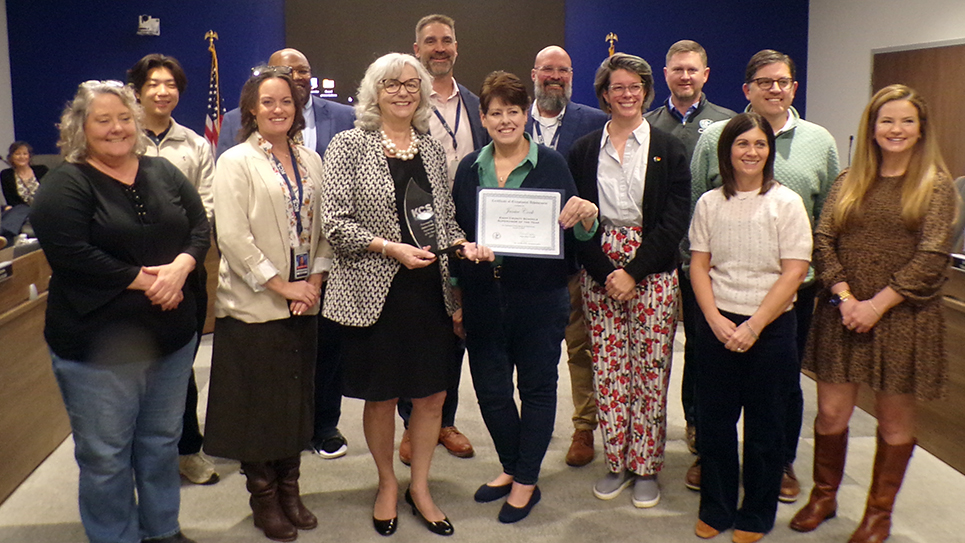Last week in the Publisher’s Position The Knoxville Focus examined whether Knoxville is making the mistakes that Nashville has already made. We received a great deal of positive feedback at The Focus from as close as Farragut and as far away as Nashville. On the WETR radio show the “Knoxville Morning News” Mark Cunningham, the vice president of communications and outreach for the Beacon Center of Nashville, commented on our Publisher’s Position and remarked how important our analysis was and that many people at the Beacon Center had read and commented on it. Locally in Farragut a 308 comment long post on Nextdoor discussed the concern that Farragut was making mistakes that Knoxville has already made with the vast majority of commenters saying they did not want more apartments or Section 8 housing in Farragut.
In Knoxville there was an important response from Mayor Madeline Rogero. She issued a Press Release highlighting her supposed accomplishments in affordable housing in her nearly eight years in office.
The Press Release stated: During Mayor Madeline Rogero’s nearly eight years in office, the City of Knoxville and its housing partners have invested more than $236 million in the construction and rehabilitation of affordable housing.
The City’s investment of $47.5 million has leveraged spending from other sources totaling more than $189 million. These investments have resulted in the creation or rehabilitation of 4,502 units of affordable housing – 3,787 completed, with 715 additional units in the pipeline as of Sept. 1, 2019.
“Increasing the availability of affordable housing has been a priority of my administration,” Mayor Rogero said. “Our Community Development staff works with public, private and nonprofit developers and maximizes the allocation of City funds by leveraging other public and private sector dollars.”
What Mayor Rogero did not say is that how Knoxville does affordable housing actually makes affordable housing worse. The way Knoxville does affordable housing is actually corporate welfare for businesses that specialize in getting grants, Tax Increment Financing, Payment in Lieu of Taxes, from the city of Knoxville and then HUD grants and payments. Then fifteen years later the cycle starts over as the HUD agreement has run out and instead of renewing for another HUD period, the business owner remodels and reopens with higher, market-rate rents forcing people out of affordable housing and creating the need for the next round of corporate welfare. Does that seem to be a reasonable way to provide affordable housing? Exacerbating the problem while claiming it is being solved.
What creates the affordable housing need? Cities like Knoxville that raise taxes and fees which in turn causes rents to go up. Cities like Knoxville that give grants, Tax Increment Financing, and Payment in Lieu of Taxes to almost every single business that either breaks ground to build a new building or renovates an existing building making it difficult for the city to cash flow its budget. The result is rents that keep increasing while wages do not. Wages are not the problem. The city has no control over wages. The city does have control over giving away grants, Tax Increment Financing, Payment in Lieu of Taxes. It seems to be a habit that this mayor cannot break. Do businesses come because Knoxville is so wonderful or because Knoxville is so easy?
In Mayor Rogero’s Press Release she claims the reason so much money had to be spent in this affordable housing cycle was because: “Market forces have been the major contributor to Knoxville’s increasing need for affordable housing,” said Becky Wade, Director of the City of Knoxville Community Development Department. “Wages and incomes aren’t keeping pace with the rise in market-rate housing costs, meaning that residents making minimum wage or entry-level salaries can’t afford the same housing that they could in previous years, or are spending a larger percentage of their income on housing.”
The increase in “market-rate housing costs” is the direct result of how Knoxville does affordable housing. Why would any city give grants, Tax Increment Financing, and Payment in Lieu of Taxes to affordable housing rental companies that will go market rate in fifteen years? These businesses make out like bandits while the affordable housing problem is like a can being kicked down the road for a future Mayor to have to deal with.
Mayor Rogero further explained in her Press Release: In late 2016, a variety of factors were affecting supply and demand of rental units:
• Owners of a number of long-established affordable apartment complexes reached the end of their affordability period (established 10-15 years ago per the agreement for the federal funding they received) and, rather than renewing for another period, remodeled and reopened with higher, market-rate rents.
• After the housing crisis, fewer people were able to or wanted to finance a mortgage on a home, so they sought to rent.
• Demand for rental units increased as Knoxville’s population is growing.
• Wages for minimum-wage workers have stagnated while other costs of living have increased.
These factors and their timing were major contributors to a critical lack of affordable rental housing in Knoxville. KCDC units were fully occupied, with some units unavailable to rent due to upgrades being made. For the first time in years, there was a waiting list.
To say Knoxville is doing affordable housing wrong is an understatement. Knoxville by playing the HUD fifteen year game creates homelessness while bragging that they are the solution. What could make this even worse? Recode will. If Recode is not bad enough Mayor Rogero wants to double the population of Knoxville while reducing carbon emissions by 50% by the year 2030. How are those goals possible? What will the rents of 2030 be?
Mayor Rogero was the grant writer for Mayor Bill Haslam. Indya Kincannon was the grant writer for Mayor Rogero. If you are a hammer you tend to see everything as a nail. If you are a grant writer you tend to think all problems are solved with government grants. In the last eight years we have learned that solving affordable housing requires more than HUD grants. In fact, maybe HUD grants are part of the core problem?






